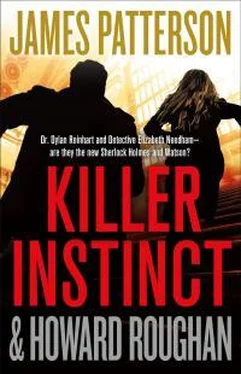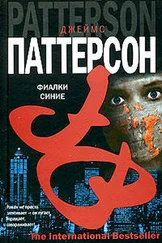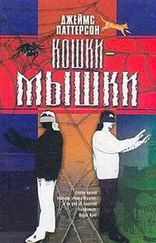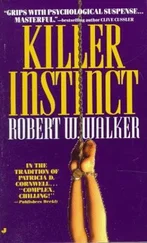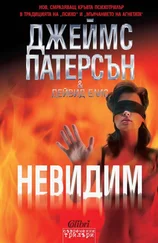All the men in the room had been embedded in the US for close to five years. They were well versed in American slang and idioms. They all spoke English fluently. None of them were married. All of them had jobs. These were the requirements.
Lastly, the Mudir raised the MP-443 Grach, the standard-issue semiautomatic pistol of the Russian military. He explained that all twelve men would be armed with the pistol in addition to their assault rifle. “It will function as backup should your rifle jam.”
That took care of the weapons portion of the presentation. The Mudir next discussed timing and transportation. As he spoke he began seeing what he expected. A few of the men were stealing glances around the room, doing a head count to themselves. They were confused by the math.
The Mudir kept referring to the dozen men who would take part in the attack, but there were thirteen of them in the room. Was someone going to play a special role not yet discussed?
Yes.
“Are there any questions?” asked the Mudir.
One of the men raised his hand. The Mudir nodded at him. Permission to speak.
“Why are there thirteen of us here if only twelve are needed?” the man asked.
The Mudir smiled. The trick to turning men into murderers was to show them how little control they had over their own fate. Life was not precious. It was not special. It wasn’t anything.
And if you truly believed in what you were doing—your god and your cause—then life was yours to take from others at any time.
It required radical thinking to radicalize people.
“I didn’t hear you,” said the Mudir, walking toward the man who had raised his hand. “Can you repeat what you said?”
No, he couldn’t. All the man could do was stare at the MP-443 Grach in the Mudir’s hand before literally pissing himself in his folding chair. “I’m sorry,” he said finally.
“I’m not,” said the Mudir.
Raising his arm, he pumped a single round from the semiautomatic pistol right between the man’s eyes. The shot was so clean the man barely moved as blood poured out the back of his head like water from a spigot.
The Mudir returned to his large duffel on the table, looking around at the twelve remaining men who would carry out the attack on the train station on July 4th.
“Does anyone else have a question?” he asked.
Chapter 25
TRACY SHOOK his head with a chuckle as he dipped a spring roll into some hot mustard. “You’ve gotta admit, this is pretty funny,” he said.
“What is?” I asked.
“This,” he said, looking around our living room. “Us.”
“What about us?” asked Elizabeth.
“A straight girl shacking up with two gay white guys who have a black South African baby,” he said. “And we’re all eating Chinese food. This is either a Benetton ad or the pilot for a sitcom that’s trying way too hard.”
Tracy had no idea where I’d been that afternoon, but after paying my last respects to Ahmed, I was in desperate need of a laugh.
Elizabeth laughed, too. She was in the middle of slurping a lo mein noodle, and that only made her laugh harder. She was still banged up, still in some pain, but it was good to see. By the looks of her when she first walked in, her day had been as much of a bummer as mine. It certainly didn’t help that reporters were continuing to stake out her apartment building.
We’d just put Annabelle down for the night and were sitting around on the floor of the den eating takeout from Han Dynasty and watching the news. It was twenty-four seven about the bombings—the victims, the survivors, and now the search for the terrorists responsible. Naturally, the blame game had begun. The police? The FBI? The CIA? The NSA? Homeland Security? Who dropped the ball?
“Do you want me to change the channel?” I asked Elizabeth.
“I would love you to,” she said, “but don’t. I need to watch, like it or not.”
She was right. It was part of her job now.
The only thing she’d shared with us—the only thing she was permitted to share with us—was that she’d been assigned to the Times Square investigation. Tracy and I didn’t ask her for any inside scoop, and she knew enough not to offer one. I was wondering, though. Had she been briefed about Ahmed and his being embedded with the terrorist cell? Would she ever be?
There was something else, too. Elizabeth had gotten what she wanted. She’d been taken off the Professor Darvish case. But somehow she hadn’t seemed all that pleased about it when she told us. What was bothering her?
Hold that thought.
The sound of Annabelle crying suddenly filtered to us from down the hall. “I’ve got her,” I said, starting to get up.
“No, let me,” said Tracy, beating me to it. “It’s my turn.”
Parenting is life’s biggest learning curve, but Tracy and I at least had the balancing act part of it down pat. We didn’t actually take turns tending to Annabelle. It’s not like either of us kept count of who did what for her. It was more instinctual. We both just had a sense of when one of us should step in for the other. Can you really be good parents without that?
“I’m calling that last dumpling, though,” said Tracy, pointing at the box in front of me as he headed for Annabelle’s room.
No sooner had he gotten there than Elizabeth turned to me. “I need to ask you something,” she said.
“Anything,” I answered, although I immediately regretted it.
“Before Pritchard reassigned me this morning I showed him the video of Darvish and his mystery woman,” she said.
“And?”
“And Pritchard pretended to have no idea about the white glow obscuring her face.”
“How did you know he was pretending?”
“It was a look he had,” she said. “It was super quick, came and went in an instant, but I saw it. I know I did.”
“What kind of look?”
“The same kind you gave me last night when I showed you the video,” she said. “You already know what’s causing that glow.”
“You’re that sure, huh? All based on a look?”
“Actually, I wasn’t sure until after I walked into your apartment tonight. That was the clincher.”
The second she said that, I knew she had me. I hated it when Elizabeth reminded me of how smart she was. But I loved it even more.
“Go ahead,” I said.
“You haven’t once tonight mentioned the video. You haven’t asked about my meeting with Pritchard, what he thought about the glow, anything…”
“You’re right, I haven’t,” I said.
“Because you don’t want to talk about it.”
“Or maybe I can’t talk about it.”
“Too late,” she said. “What are you not telling me, Dylan Reinhart?”
Chapter 26
I GLANCED down the hall, listening to the faint sound of Tracy singing softly to Annabelle.
When we first brought her home, we discovered she was basically lullaby-proof. None of the staples like “Hush, Little Baby” seemed to calm her down. Desperate one night, Tracy and I riffled through his iTunes playlist like a couple of possessed Casey Kasems. Much to our relief—and delight—we discovered that our baby girl was a Beatles fan. Tracy was now in the middle of one of her favorites, “Penny Lane.”
“Tracy really has a nice voice,” I said. “Don’t you think?”
“You’re stalling,” said Elizabeth. “That’s what I think.”
She’d intentionally waited until we were alone before asking me about the glow, and that only made me feel worse. She knew my darkest secret and Tracy didn’t.
I’d become all too adept at concealing from Tracy anything having to do with my CIA days. But my decision not to tell him—made so many years ago and done, I was convinced, for his protection—had always hung over me. At that moment it felt as if there were a giant boulder perched on a ledge in the middle of an earthquake, and I was standing directly below it wearing a pair of lead shoes.
Читать дальше
